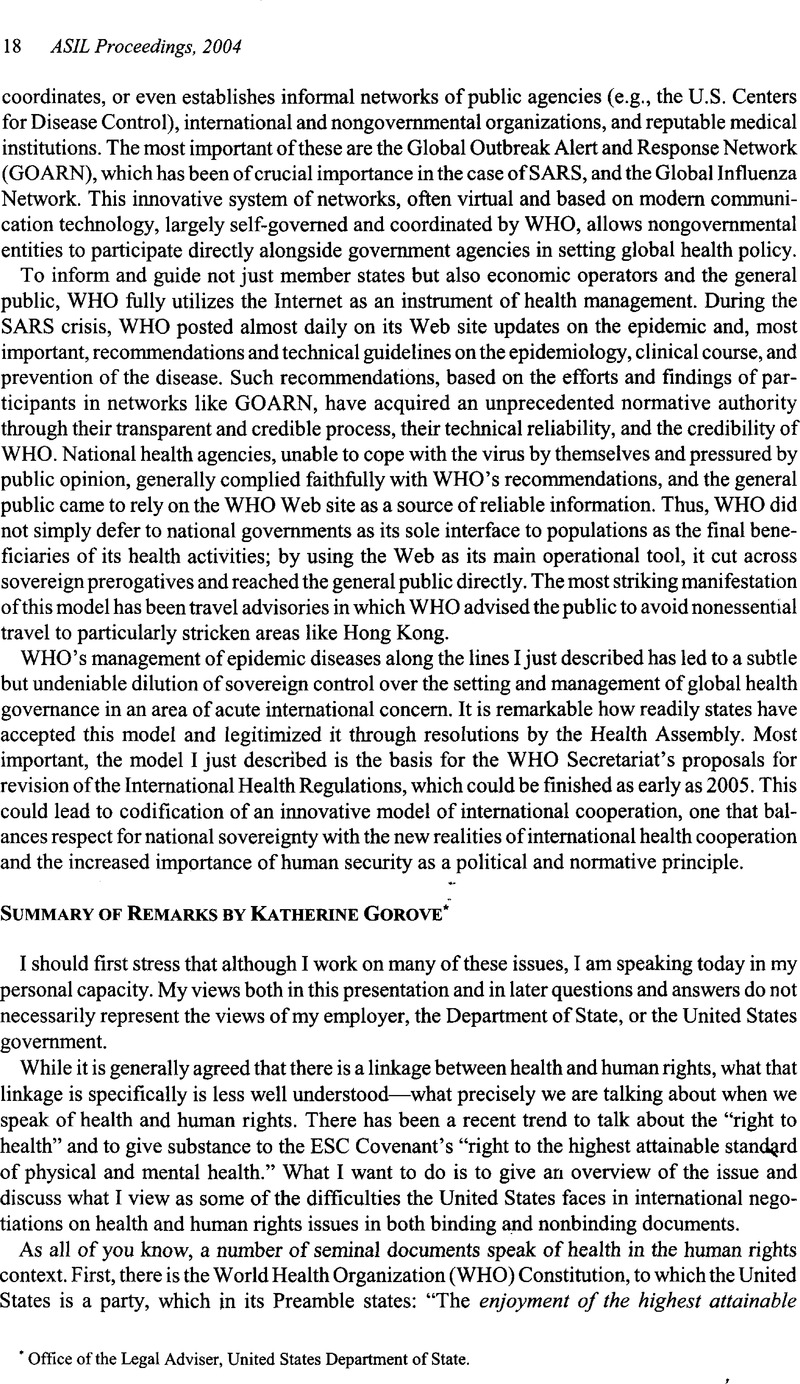No CrossRef data available.
Article contents
Summary of Remarks by Katherine Gorove
Published online by Cambridge University Press: 28 February 2017
Abstract

- Type
- Shifting Norms in International Health Law
- Information
- Copyright
- Copyright © American Society of International Law 2004
References
1 See CESCR General Comment 1, Reporting by States Parties, UN Doc. E/1989/22. The General Comments of the CEDSCR are compiled periodically, most recently in UN Doc. HRI/GEN/l/Rev.6 (May 12, 2003), available at <http://www.unhchr.ch/tbs/doc.nsf>.
2 UN Doc. E/C.12/2000/4.
3 UN Doc. E/CN.4/2000/48, para. 59 (emphasis added).
4 The Committee defines the core obligations in para. 43, stating:
43. In General Comment No. 3, the Committee confirms that States parties have a core obligation to ensure the satisfaction of, at the very least, minimum essential levels of each of the rights enunciated in the Covenant, including essential primary health care. . . . Accordingly, in the Committee’s view, these core obligations [of Article 12 of the ESC Covenant] include at least the following obligations:
-
(a)
(a) To ensure the right of access to health facilities, goods and services on a non-discriminatory basis, especially for vulnerable or marginalized groups;
-
(b)
(b) To ensure access to the minimum essential food which is nutritionally adequate and safe, to ensure freedom from hunger to everyone;
-
(c)
(c) To ensure access to basic shelter, housing and sanitation, and an adequate supply of safe and pothole water;
-
(d)
(d) To provide essential drugs, as from time to time defined under the WHO Action Programme on Essential Drugs;
-
(e)
(e) To ensure equitable distribution of all health facilities, goods and services;
-
(f)
(f) To adopt and implement a national public health strategy and plan of action, on the basis of epidemiological evidence, addressing the health concerns of the whole population; the strategy and plan of action shall be devised, and periodically reviewed, on the basis of a participatory and transparent process; they shall include methods, such as right to health indicators and benchmarks, by which progress can be closely monitored; the process by which the strategy and plan of action are devised, as well as their content, shall give particular attention to all vulnerable or marginalized groups.
5 CHR Res. 2002/24 (April 22, 2002), para. 9(f). ECOSOC’s endorsement was on July 25, 2002 by a vote of 44-1 (US)-4 (Australia, India, Japan, Pakistan).




